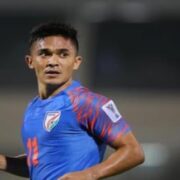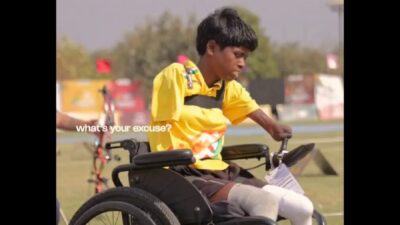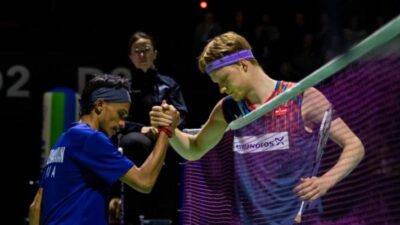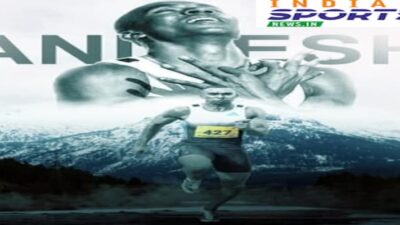In a high-stakes meeting that could shape India’s long-term sporting ambitions, the International Olympic Committee (IOC) delivered a sobering reality check to Indian officials pitching to host the 2036 Olympic Games. While the Indian delegation, led by Gujarat Home and Sports Minister Harsh Sanghavi and Indian Olympic Association (IOA) president P.T. Usha, made a formal presentation in Lausanne, the IOC responded with candor — India’s Olympic dreams hinge on fixing deep-rooted issues first.
At the heart of the IOC’s concerns lie three critical challenges: persistent governance issues plaguing the IOA, rampant doping across multiple sporting disciplines, and India’s underwhelming Olympic track record.

The-Indian-delegation-to-Lausanne-was-headed-by-Gujarat’s-Home-and-Sports-Minister-Harsh-Sanghavi-and-IOA-president-PT-Usha
A Historic Pitch Meets Stark Criticism
Tuesday’s presentation in Lausanne marked a significant step forward in India’s long-standing aspiration to host the Olympics. The delegation, composed of senior bureaucrats from both central and state governments, IOA officials, and private consultants, formally proposed Ahmedabad as the host city for the 2036 Games.
However, the IOC’s feedback was less than enthusiastic.
“It has been communicated very candidly that while India can continue preparing for its bid to host future Olympics, the country has to address these issues first,” a senior official who was present at the meeting told The Indian Express. “This was, in a nutshell, the big takeaway.”
The IOC’s position reflects a growing concern among global sports bodies over India’s sporting ecosystem, which despite its economic might and demographic advantage, continues to be marred by administrative inefficiencies and doping scandals.

An-Indian-delegation-made-a-strong-pitch-to-bring-home-the-2036-Olympics-outlining-plans-to-the-International-Olympic-Committee-(IOC)-at-the-Olympic-headquarters-in-Lausanne
Governance Woes at the IOA
One of the key points of friction is the ongoing power struggle within the Indian Olympic Association itself. Since taking over as IOA’s first woman president, legendary athlete P.T. Usha has faced resistance from within her own Executive Council. The disputes — ranging from disagreements over sponsorship deals to financial mismanagement allegations and the controversial appointment of Raghuram Iyer as CEO — have brought decision-making to a standstill.
The situation became so dire that in October 2024, the IOC suspended its athlete welfare grants to India, citing administrative paralysis. These funds are critical for supporting athletes’ training, rehabilitation, and international exposure.
“The world body has said it will not release the funds until the situation improves,” said the official.
This infighting, as observed by many within the sporting fraternity, has already disrupted preparations for upcoming multi-sport events. More worryingly, it signals a lack of institutional maturity at a time when India is seeking to host one of the most prestigious events in the world.
The Doping Scandal That Won’t Go Away
India’s doping problem is another major hurdle. According to the World Anti-Doping Agency’s (WADA) 2023 report — the latest available — India recorded the highest positivity rate for banned substances among major sporting nations. An earlier WADA study in 2022 ranked India second only to Russia in the number of positive doping cases among minors.
Further reinforcing these concerns, the Athletics Integrity Unit (AIU) placed India second on the list of doping offenders in track and field events as of May 2025, behind only Kenya.
The implications are alarming: for a nation aspiring to host the Olympics, systemic doping not only undermines credibility but also risks international isolation.
In response, a Union Sports Ministry official said a national anti-doping action plan is in the works, with an emphasis on both prevention and enforcement.
“We are aware of these challenges and are doing everything we can to make sure that these issues do not come in the way of our 2036 Olympics bid,” the official said. “The crackdown on doping will be firm and transparent.”

India-recorded-the-highest-positivity-rate-for-banned-substances-among-major-sporting-nations.
Sporting Performance: An Unfinished Story
India’s Olympic performance — though gradually improving — remains underwhelming compared to the scale of its ambitions. At the Paris 2024 Olympics, India finished 71st with a total of six medals, including one gold. While this was an improvement over some previous editions, the performance still reflects a fundamental gap in infrastructure, grassroots development, and high-performance training.
The IOC emphasized that for India to make a compelling case as a host nation, its on-field success must reflect its off-field ambition.
“Performance is not just about national pride — it speaks to the effectiveness of systems,” said a senior Olympic analyst. “You can’t expect the world to rally behind your bid if your athletes aren’t competing at the top level consistently.”

India’s-Olympic-performance-though-gradually-improving -remains-underwhelming-compared-to-the-scale-of-its-ambitions.
A Pause That Could Help
Interestingly, the IOC’s recent decision to pause the host selection process — announced last month after Kirsty Coventry took over as the new president — could work in India’s favor. The pause is meant to reassess and improve the selection model, giving countries more time to prepare comprehensive, credible bids.
“This pause gives India much-needed time to sort out all the internal issues,” said an official from the Indian delegation. “It’s an opportunity — not a setback.”
The IOC’s revised selection model aims to increase transparency and inclusiveness while placing greater emphasis on long-term sustainability, athlete welfare, and geopolitical stability. These changes could align well with India’s timeline, provided the country undertakes serious reform.
The Road Ahead: Reform or Retreat?
India’s pitch to host the Olympics is rooted in larger geopolitical and economic aspirations. Hosting the Games would symbolize the country’s rise on the global stage, much like China’s 2008 Beijing Olympics or Brazil’s 2016 Rio edition. But symbolism alone isn’t enough.
For India, this is a moment of reckoning. The IOC has signaled that it welcomes India’s interest, but not without proof of progress. Cleaning up governance, establishing a zero-tolerance approach to doping, and building a pipeline for world-class athletic performance will be non-negotiable.
The Ministry of Youth Affairs and Sports has hinted at forming a high-level task force to address these issues holistically, but concrete outcomes remain to be seen.

India’s-pitch-to-host-the-Olympics-is-rooted-in-larger-geopolitical-and-economic-aspirations.
Conclusion: A Dream Deferred, Not Denied
India’s 2036 Olympics bid may have hit an early stumbling block, but it’s far from over. The message from Lausanne was not one of rejection but of readiness — or lack thereof.
In the coming months, all eyes will be on the IOA, the Sports Ministry, and key stakeholders to see whether India can course-correct and mount a credible, unified campaign. The Olympics represent more than just sport — they are a global benchmark of excellence, integrity, and unity.
If India is to join that elite club of host nations, the journey must begin with reform, responsibility, and a renewed commitment to its athletes. Only then can the tricolor truly fly over an Olympic stadium on home soil.
Click here to watch more!



















Comments